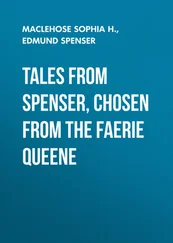Rohinton Mistry - Tales From Firozsha Baag
Здесь есть возможность читать онлайн «Rohinton Mistry - Tales From Firozsha Baag» весь текст электронной книги совершенно бесплатно (целиком полную версию без сокращений). В некоторых случаях можно слушать аудио, скачать через торрент в формате fb2 и присутствует краткое содержание. Год выпуска: 2006, Издательство: Faber & Faber, Жанр: Современная проза, на английском языке. Описание произведения, (предисловие) а так же отзывы посетителей доступны на портале библиотеки ЛибКат.
- Название:Tales From Firozsha Baag
- Автор:
- Издательство:Faber & Faber
- Жанр:
- Год:2006
- ISBN:нет данных
- Рейтинг книги:3 / 5. Голосов: 1
-
Избранное:Добавить в избранное
- Отзывы:
-
Ваша оценка:
- 60
- 1
- 2
- 3
- 4
- 5
Tales From Firozsha Baag: краткое содержание, описание и аннотация
Предлагаем к чтению аннотацию, описание, краткое содержание или предисловие (зависит от того, что написал сам автор книги «Tales From Firozsha Baag»). Если вы не нашли необходимую информацию о книге — напишите в комментариях, мы постараемся отыскать её.
Tales From Firozsha Baag — читать онлайн бесплатно полную книгу (весь текст) целиком
Ниже представлен текст книги, разбитый по страницам. Система сохранения места последней прочитанной страницы, позволяет с удобством читать онлайн бесплатно книгу «Tales From Firozsha Baag», без необходимости каждый раз заново искать на чём Вы остановились. Поставьте закладку, и сможете в любой момент перейти на страницу, на которой закончили чтение.
Интервал:
Закладка:
“Sarosh, out of his own experience, vigorously nodded agreement. By now he was truly fascinated by Mrs. Maha-Lepate’s wealth of information. Reluctantly, he interrupted: ‘But will Dr. No-Ilaaz be able to solve my problem?’
“ ‘I have every confidence that he will,’ replied Mrs. Maha-Lepate in great earnest. ‘And if he has no remedy for you right away, he will be delighted to start working on one. He loves to take up new projects.’ ”
Nariman halted to blow his nose, and a clear shrill voice travelled the night air of the Firozsha Baag compound from C Block to where the boys had collected around Nariman in A Block: “Jehangoo! O Jehangoo! Eight o’clock! Upstairs now!”
Jehangir stared at his feet in embarrassment. Nariman looked at his watch and said, “Yes, it’s eight.” But Jehangir did not move, so he continued.
“Mrs. Maha-Lepate was able to arrange an appointment while Sarosh waited, and he went directly to the doctor’s office. What he had heard so far sounded quite promising. Then he cautioned himself not to get overly optimistic, that was the worst mistake he could make. But along the way to the doctor’s, he could not help thinking what a lovely city Toronto was. It was the same way he had felt when he first saw it ten years ago, before all the joy had dissolved in the acid of his anxieties.”
Once again that shrill voice travelled through the clear night: “Arre Jehangoo! Mua , do I have to come down and drag you upstairs!”
Jehangir’s mortification was now complete. Nariman made it easy for him, though: “The first part of the story is over. Second part continues tomorrow. Same time, same place.” The boys were surprised, Nariman did not make such commitments. But never before had he told such a long story. They began drifting back to their homes.
As Jehangir strode hurriedly to C Block, falsettos and piercing shrieks followed him in the darkness: “Arré Jehangoo! Mua Jehangoo! Bulsara Bookworm! Eight o’clock Jehangoo!” Shaking his head, Nariman went indoors to Hirabai.
Next evening, the story punctually resumed when Nariman took his place on the topmost step of A Block: “You remember that we left Sarosh on his way to see the Immigrant Aid Society’s doctor. Well, Dr. No-Ilaaz listened patiently to Sarosh’s concerns, then said, As a matter of fact, there is a remedy which is so new even the IAS does not know about it. Not even that Mrs. Maha-Lepate who knows it all,’ he added drolly, twirling his stethoscope like a stunted lasso. He slipped it on around his neck before continuing: ‘It involves a minor operation which was developed with financial assistance from the Multicultural Department. A small device, Crappus Non Interruptus , or CNI as we call it, is implanted in the bowel. The device is controlled by an external handheld transmitter similar to the ones used for automatic garage door-openers — you may have seen them in hardware stores.’ ”
Nariman noticed that most of the boys wore puzzled looks and realized he had to make some things clearer. “The Multicultural Department is a Canadian invention. It is supposed to ensure that ethnic cultures are able to flourish, so that Canadian society will consist of a mosaic of cultures — that’s their favourite word, mosaic — instead of one uniform mix, like the American melting pot. If you ask me, mosaic and melting pot are both nonsense, and ethnic is a polite way of saying bloody foreigner. But anyway, you understand Multicultural Department? Good. So Sarosh nodded, and Dr. No-Ilaaz went on: ‘You can encode the handheld transmitter with a personal ten-digit code. Then all you do is position yourself on the toilet seat and activate your transmitter. Just like a garage door, your bowel will open without pushing or grunting.’ ”
There was some snickering in the audience, and Nariman raised his eyebrows, whereupon they covered up their mouths with their hands. “The doctor asked Sarosh if he had any questions. Sarosh thought for a moment, then asked if it required any maintenance.
“Dr. No-Ilaaz replied: ‘CNI is semi-permanent and operates on solar energy. Which means you would have to make it a point to get some sun periodically, or it would cease and lead to constipation. However, you don’t have to strip for a tan. Exposing ten percent of your skin surface once a week during summer will let the device store sufficient energy for year-round operation.’
“Sarosh’s next question was: ‘Is there any hope that someday the bowels can work on their own, without operating the device?’ at which Dr. No-Ilaaz grimly shook his head: ‘I’m afraid not. You must think very, very carefully before making a decision. Once CNI is implanted, you can never pass a motion in the natural way — neither sitting nor squatting.’
“He stopped to allow Sarosh time to think it over, then continued: ‘And you must understand what that means. You will never be able to live a normal life again. You will be permanently different from your family and friends because of this basic internal modification. In fact, in this country or that, it will set you apart from your fellow countrymen. So you must consider the whole thing most carefully.’
“Dr. No-Ilaaz paused, toyed with his stethoscope, shuffled some papers on his desk, then resumed: ‘There are other dangers you should know about. Just as a garage door can be accidentally opened by a neighbour’s transmitter on the same frequency, CNI can also be activated by someone with similar apparatus.’ To ease the tension he attempted a quick laugh and said, ‘Very embarrassing, eh, if it happened at the wrong place and time. Mind you, the risk is not so great at present, because the chances of finding yourself within a fifty-foot radius of another transmitter on the same frequency are infinitesimal. But what about the future? What if CNI becomes very popular? Sufficient permutations may not be available for transmitter frequencies and you could be sharing the code with others. Then the risk of accidents becomes greater.’ ”
Something landed with a loud thud in the yard behind A Block, making Nariman startle. Immediately, a yowling and screeching and caterwauling went up from the stray cats there, and the kuchrawalli’s dog started barking. Some of the boys went around the side of A Block to peer over the fence into the backyard. But the commotion soon died down of its own accord. The boys returned and, once again, Nariman’s voice was the only sound to be heard.
“By now, Sarosh was on the verge of deciding against the operation. Dr. No-Ilaaz observed this and was pleased. He took pride in being able to dissuade his patients from following the very remedies which he first so painstakingly described. True to his name, Dr. No-Ilaaz believed no remedy is the best remedy, rather than prescribing this-mycin and that-mycin for every little ailment. So he continued: ‘And what about our sons and daughters? And the quality of their lives? We still don’t know the long-term effects of CNI. Some researchers speculate that it could generate a genetic deficiency, that the offspring of a CNI parent would also require CNI. On the other hand, they could be perfectly healthy toilet seat-users, without any congenital defects. We just don’t know at this stage.’
“Sarosh rose from his chair. ‘Thank you very much for your time, Dr. No-Ilaaz. But I don’t think I want to take such a drastic step. As you suggest, I will think it over very carefully.’
“ ‘Good, good,’ said Dr. No-Ilaaz, ‘I was hoping you would say that. There is one more thing. The operation is extremely expensive, and is not covered by the province’s Health Insurance Plan. Many immigrant groups are lobbying to obtain coverage for special immigration-related health problems. If they succeed, then good for you.’
Читать дальшеИнтервал:
Закладка:
Похожие книги на «Tales From Firozsha Baag»
Представляем Вашему вниманию похожие книги на «Tales From Firozsha Baag» списком для выбора. Мы отобрали схожую по названию и смыслу литературу в надежде предоставить читателям больше вариантов отыскать новые, интересные, ещё непрочитанные произведения.
Обсуждение, отзывы о книге «Tales From Firozsha Baag» и просто собственные мнения читателей. Оставьте ваши комментарии, напишите, что Вы думаете о произведении, его смысле или главных героях. Укажите что конкретно понравилось, а что нет, и почему Вы так считаете.












